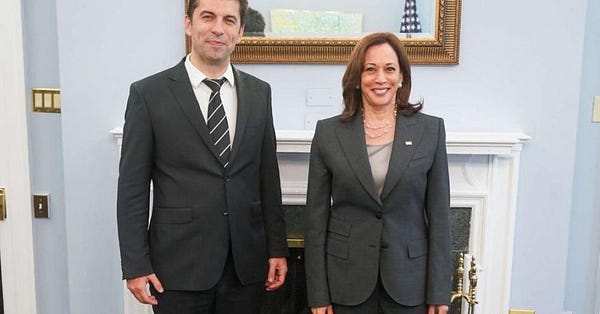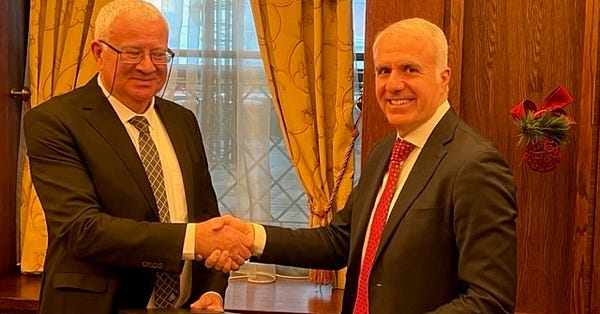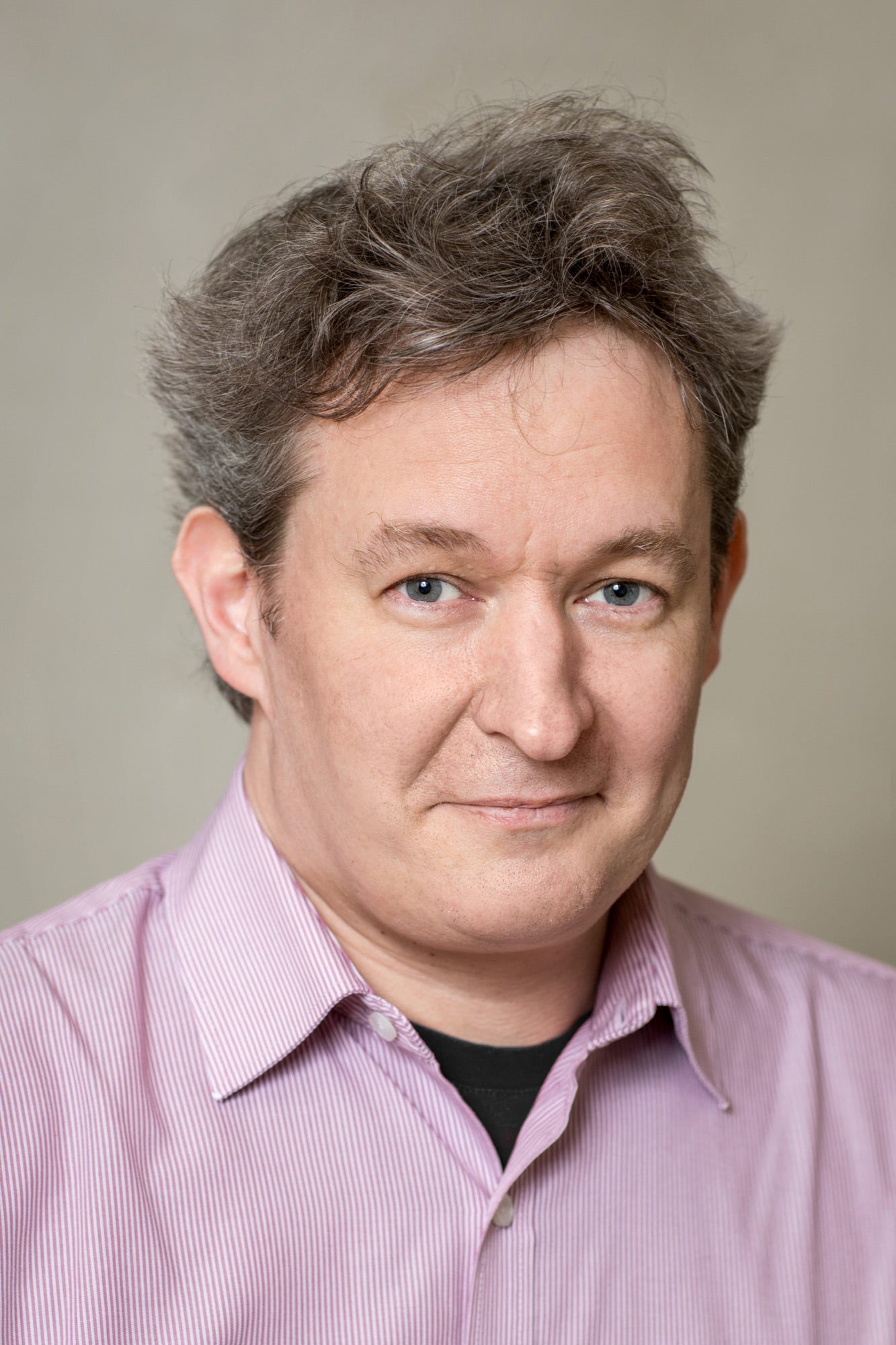Jan 5: Michael Martens, Weaning Bulgaria off of Russian Gas
Full thread as published January 4, 2023
Who is Michael Martens…
Michael Martens has been the political correspondent for the Frankfurter Allgemeine Zeitung since 2002, currently in Vienna. Before joining FAZ, he was a freelance journalist based in Almaty, then Kyiv, then St. Petersburg, reporting from Central Asia, Ukraine, Russia, Pakistan and Afghanistan.
Michael Martens, Weaning Bulgaria off of Russian Gas

On April 27, 2022, Gazprom stopped supplying Bulgaria with gas. Back then, Bulgaria had received about 90% of its gas from Russia. Armageddon scenarios made the rounds: A collapsing industry, people freezing in cold houses, misery.
Former Bulgarian Prime Minister Kyrill Petkov says that when he took office in late 2021, his country was 95% dependent on Russian gas. That is why Bulgaria was not prepared for a complete oil and gas boycott against Moscow immediately after the start of the Russian attack on Ukraine.
"Industry would have stood still overnight, heating would also have become difficult", Petkov says. The filling level of the only Bulgarian gas storage facility in the town of Chiren had fallen to 17% in April “We literally only had gas for a few days,” Petkow says.
He traveled to the US, spoke to Vice President Kamala Harris and Secretary of State Antony Blinken. Both were "very constructive", Petkow says: "They wanted to show that Russia cannot successfully use gas as a weapon."


However, it was now also necessary to secure suitable ports in order to unload the LNG tankers and feed it into the Bulgarian grid in regasified form. A huge hurdle. "The berths were booked out well in advance everywhere in the region," says Petkow.
Petkow thanked Turkish President Tayyip Erdogan for helping out: "The Turkish government created capacity in its ports for the two tankers at short notice." Another autocrat also contributed: Azerbaijan's dictator Ilhan Aliev. "I had very good talks with Aliyev," says Petkov. Azerbaijan now supplies a third of Bulgaria's annual gas needs. The contract runs for more than 20 years.
Another actor that Petkov expressly praises is the EU: The fact that Bulgaria is a member helped it break away from Gazprom, he says.
Petkov describes how EU Council President Charles Michel helped establishing contacts with British Petroleum, an important player in Azerbaijan's gas fields: "Everyone made an effort. I felt supported”, Petkov summarizes.
Besides, after years of delays, the so-called "interconnector" between Greece and Bulgaria finally went into operation in October 2022. Both Azerbaijani and other gas can now flow to Bulgaria via this connection.
"After we came to power, the interconnector was our most important project," says Petkow. He says he was on the phone with Greek Prime Minister Kyriakos Mitsotakis every week on this matter.
Mitsotakis and Petkov are both Harvard graduates, both have entrepreneurial experience, they think alike. “We were almost something like operation managers. If there was a bottleneck during construction, we got involved personally”, Petkov explains.
Thus, a project that had not been completed for ten years could be completed within months. Petkov claims earlier delays had to do with disruptive maneuvers by the Kremlin and the stance of his predecessor Boyko Borissov.
"I think there was a crucial Gazprom lobby connected to the Borisov government." Petkov cannot prove such allegations, but certain details stand out. “Borisov spent 1.5 billion euros of taxpayers money to extend the Russian ´Turkstream´ pipeline through Bulgaria to Serbia”.
"I think there was a crucial Gazprom lobby connected to the Borisov government." Petkov cannot prove such allegations, but certain details stand out. “Borisov spent 1.5 billion euros of taxpayers money to extend the Russian pipeline Turkstream´ through Bulgaria to Serbia.´”
Extending the Turkstream to Serbia (and further to Hungary) was indeed part of Russia's strategy to supply gas to European markets bypassing Ukraine. According to Petkov, this shows that Borisov's commitment to the West was never worth much.
On the other hand, it was Borisov who made sure that Bulgaria bought a 20% stake in the floating LNG terminal under construction off Alexandropouli in Greece. Via this terminal, Bulgaria will be able to import gas from the US, Qatar and other countries from 2024.
"That's true," Petkov admits, but he immediately adds: "Borisov always tried to be on good terms with Russia and the West, that was his game. But the extension of Turkstream via Bulgaria was the greatest possible geopolitical gift for Putin.”
But if that's the case, why did the EU Commission allow Borissov to go ahead with Turkstream? "Good question”, Petkow answers. “I think all of Europe was blindsided on this issue”.
Petkov summarizes: "I'm proud of us. After Gazprom broke the current contract with us, we managed to reduce our dependency to zero percent overnight. We took a big risk, but we won.”
Of course, energy prices did increase in Bulgaria. But the country has not collapsed. Large company bankruptcies have been avoided so far. Denica Zlatewa, general director of the state-owned company Bulgargaz, explains how the country intends to further secure supplies.
The tender for the expansion of the gas storage facility in Chiren is underway. Capacity is to be doubled by 2025. It will then be able to hold a quarter of Bulgaria's annual consumption.
From 2024, when the LNG terminal off Alexandroupoli is to start operating, 1/3 of Bulgarian demand can be covered from there via the interconnector. Of course, all this is put into perspective by the fact that the importance of natural gas was not that high in Bulgaria´s energy mix.
Bulgaria´s nuclear power plant in Kozloduy on the Danube, built in communist times with Soviet technology and providing about third of Bulgaria's electricity consumption, was until recently dependent on Russian nuclear fuel.


It's more difficult with oil. Bulgaria's largest refinery, "Neftochim" in Burgas, still belongs to Lukoil. Lukoil used to supply the entire region from there. But there are plans to oust Russia here as well.
So, Is there ever a way back to Bulgaria for Russian suppliers?
Petkov says no: "Relying on Russia is crazy," he says. If Putin wanted to demonstrate how to use energy as an instrument of power in Bulgaria, he failed miserably. More, as always, in the Frankfurter Allgemeine Zeitung:





